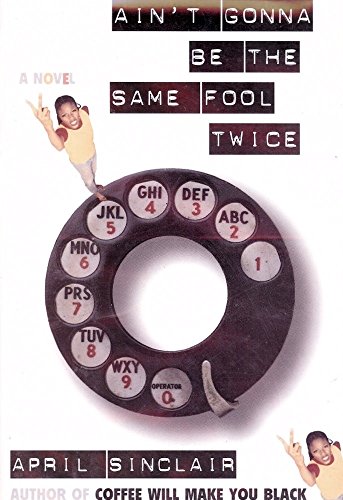Synopsis
Graduating from college in 1971, the tough-talking Stevie enthusiastically dives into the San Francisco scene, where she shares an apartment with a disco queen and joins a woman's consciousness-raising group.
Reviews
If a novel about a bisexual black woman's pilgrim's progress through the 1970s can be said to conform to the aesthetic of Norman Rockwell, this is it. Jean Stevenson, aka Stevie, the heroine of Coffee Will Make You Black, leaves her native Chicago for college in an unnamed Midwestern city. In Sinclair's cursory treatment of those years, Stevie settles in with a mixed group of friends and takes her first female lover. A graduation trip to San Francisco results in an extended stay, and she meets Traci, an attractive feminist, and moves into her extra bedroom. After the women become lovers, Traci guides Stevie through the worlds of sex, drugs and gay politics. When the relationship dissolves, Stevie moves in with Sterling, a gay drag queen. Now employed, and with new friends, she continues to explore her sexuality through affairs with Sterling's brother and a female co-worker. When her grandmother takes ill, Stevie gains some much-needed insight, leading to a resolution that ends the novel on a happy note. With the exception of Stevie and Traci, Sinclair's characters are all types: effeminate gays, militant black nationalists, etc. Stevie narrates all this with good humor. She's engaging enough, but the sunny earnestness of it all will make some readers long for at least some of the layered wit that Armistead Maupin brought to me-generation San Francisco in Tales of the City. There's a lot of self-exploration here, but it's much wider than it is deep: Sinclair surrounds everything with a nostalgic haze that does justice to neither the personal nor the political aspects of her themes of feminism, sexuality and race. Author tour.
Copyright 1995 Reed Business Information, Inc.
Readers first met Stevie as a young girl growing up on the South Side of Chicago in Coffee Will Make You Black. Stevie is a bright African American woman struggling with issues that are compounded by her sexual identity and race, and here she returns to share her humor and insight as a college student in southern Illinois. The story takes off when Stevie and her college mates plan their graduation trip to San Francisco in the late '70s. The trip initiates Stevie into the world of gay relationships, where she meets and lives with her first female lover. This relationship introduces Stevie to many "firsts" in her long journey of self-discovery--women's self-help groups, feminist events, gay bars. Her uncertainty about how to define herself and remain true to her upbringing is a challenge. And Stevie recognizes that throughout her coming-out process she made some mistakes, but the lessons she has learned ensure that she " ain't gonna be the same fool twice." Lillian Lewis
In this sequel to Coffee Will Make You Black (Hyperion, 1994), Jean "Stevie" Stevenson returns, now a freshman in college. There she struggles with racism, experiments with drugs, and tries to come to terms with her sexuality. However, it is not until she graduates and moves to San Francisco that she feels free to explore her homosexual desires, all the while concealing them from family and friends. Sinclair captures the essence of a young woman's endeavor to find a job and a sense of self in a town where she is virtually alone. Stevie is as lovable, believable, and humorous as in Sinclair's first novel; it is a joy to see her maturing. Recommended for most libraries.
-?Shenise Ross, New York
Copyright 1995 Reed Business Information, Inc.
"About this title" may belong to another edition of this title.
